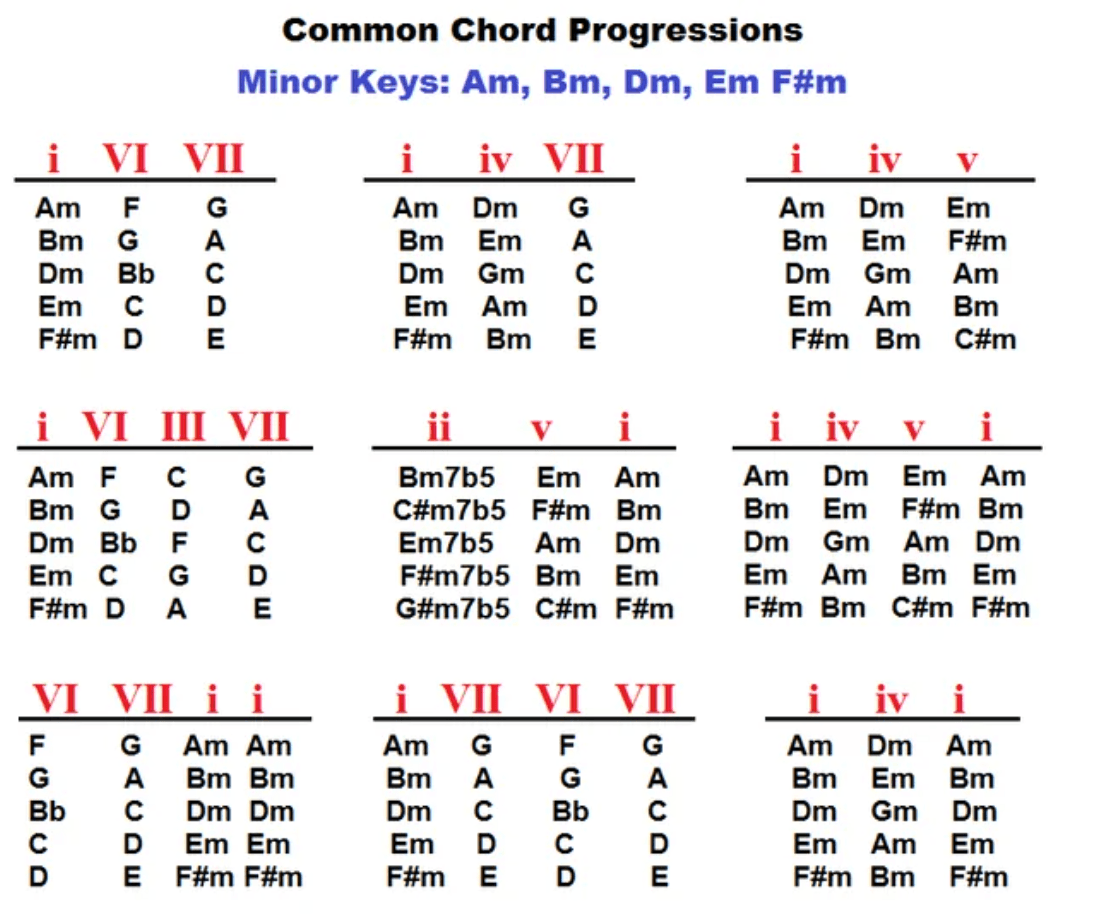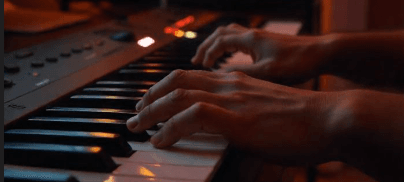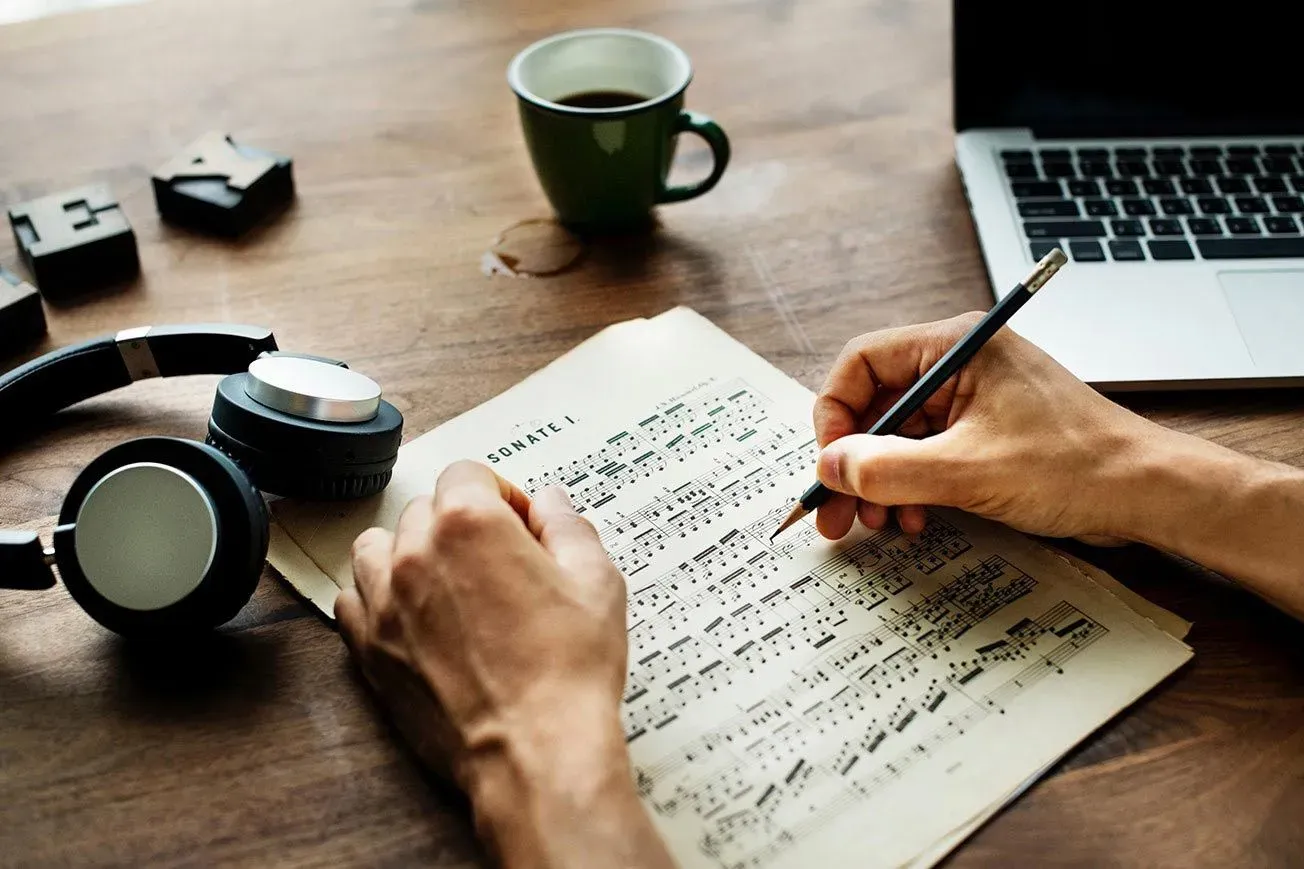Have you ever wondered how the pulsating beats and captivating lyrics of your favorite tunes come to life?
In the vibrant world of music, AI songs are emerging as groundbreaking tools, transforming the way melodies are crafted.
Let's dive into this fascinating journey where technology meets creativity, offering musicians and producers an innovative audio AI tool to amplify their artistic vision.
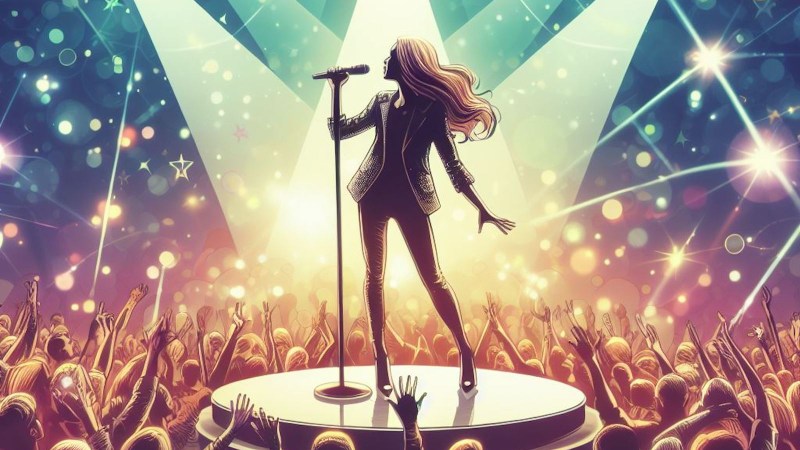
The Symphony of AI in Music: More than Just a Trend
Musicians Embracing AI Tools in Audio Production
In today's music industry, the integration of AI is a paradigm shift, transcending mere technological novelty.
AI music tools have transitioned from experimental gadgets to essential assets in the arsenal of modern musicians and producers.
These tools have revolutionized the creative process, enabling artists to push the boundaries of their musical imagination.
Augmenting Creativity with Complex Chord Progressions
One of the most striking uses of AI in music is in the realm of harmonic structures.
AI algorithms can analyze vast amounts of music theory and historical data to suggest chord progressions that are both innovative and harmonically pleasing.
This capability allows musicians to explore new sonic territories and experiment with complex arrangements that might have been challenging to conceive manually.
Crafting Melodies: A Blend of AI Ingenuity and Human Sensibility
Melody generation is another area where AI shines. By processing patterns and styles from a wide array of music, AI can generate melodies that are both unique and genre-specific.
These AI-generated melodies serve as a source of inspiration for artists, who can then refine and infuse them with their own emotional and artistic expression.
This collaboration between AI and human creativity ensures that the final composition retains the emotional depth and personal touch that are hallmarks of great music.
Efficiency and Inspiration: The Dual Role of AI
The dual role of AI as both a creative and an efficiency tool cannot be overstated. For musicians grappling with deadlines or seeking fresh perspectives, AI can rapidly produce a variety of musical elements, from rhythm tracks to harmonic sequences.
This increased efficiency doesn't sacrifice creativity; rather, it enhances the artist's workflow, affording them additional time to concentrate on the more creative facets of producing music.
Preserving the Human Touch in Music
A critical aspect of incorporating AI into music is maintaining the human element. While AI provides the tools and suggestions, the final artistic decisions rest with the human musician.
This synergy ensures that music, even when facilitated by AI, retains its soul and authenticity, resonating with listeners on a personal level.
The use of AI in audio production represents a significant evolution in the music industry. It's more than a trend; it's a transformative tool that enhances creativity, efficiency, and innovation.
As these AI music tools continue to evolve, they promise to unlock new possibilities for artists and redefine the landscape of music production, all while keeping the essence of human artistry at their core.
A Brief History: AI's Crescendo in Music
The Genesis of AI in Music: Algorithmic Beginnings
The journey of AI in music began with humble yet groundbreaking experiments in algorithmic compositions.
Early efforts focused on using basic algorithms to create simple melodies and rhythms, laying the foundation for what would become a profound transformation in music creation.
These initial steps were marked by curiosity and experimentation, exploring how technology could intersect with the art of composing.
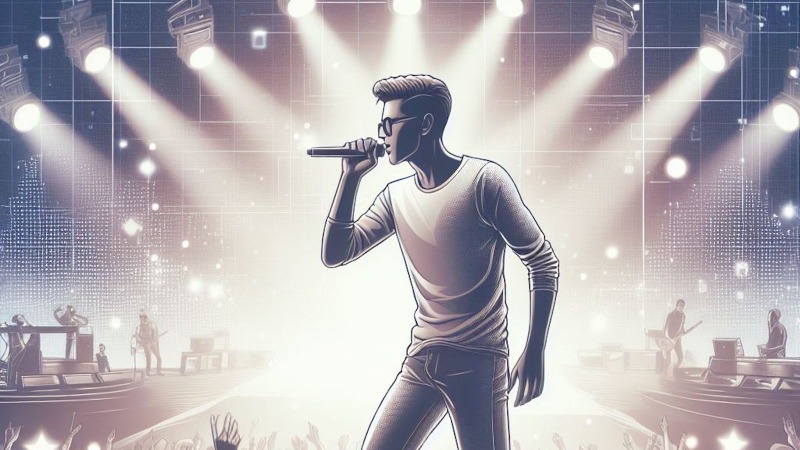
Pioneering Years: The Emergence of Computer-Generated Music
In the pioneering years of AI music, researchers and musicians began to employ rudimentary computer programs to generate music.
This era was characterized by a spirit of exploration, with musicians and technologists collaborating to understand how algorithmic processes could mimic or even enhance human creativity in music composition.
The Evolution into Sophisticated AI Music Tools
Over time, these explorations evolved into more sophisticated AI music tools. Advancements in machine learning and artificial intelligence enabled these tools to analyze and learn from vast datasets of music across genres and styles.
This learning capability allowed AI to not only replicate existing music patterns but also to create new, original compositions, pushing the boundaries of what was previously thought possible in music production.
From Experimentation to Mainstream Acceptance
The transition from experimental technology to mainstream acceptance in the music industry was gradual but significant.
As AI algorithms became more refined, they started to be used in professional audio production, offering an unprecedented level of assistance in songwriting, arrangement, and even lyric creation.
This period marked the shift of AI from a novel experiment to a valuable asset in the music creation process.
AI's Role in Modern Music Production
Currently, AI's influence in music has attained a peak. Its use extends beyond merely generating new music; it significantly enriches the creative process for artists.
Modern AI music tools offer a range of functionalities, from suggesting chord progressions and melodies to generating entire tracks.
This versatility makes AI an indispensable part of many musicians' workflows, allowing them to experiment and produce music in ways that were once unimaginable.
Reflecting the Broader Evolution of AI Across Industries
The evolution of AI in music mirrors its development in other sectors like healthcare and finance, highlighting its profound influence in both technology and the arts.
This evolution symbolizes the fusion of technological progress with artistic inquiry, fostering novel avenues for innovation and creative expression within the music realm.
AI's journey in music, from basic algorithms to a sophisticated tool in audio production, serves as a compelling example of the dynamic interaction between technology and artistic creativity.
It has revolutionized music creation, broadening the scope of possibilities in this continuously evolving artistic field.
Also: Read more about The Future of Sound and How AI is Reshaping the Music Landscape
Chart-Toppers: AI's Role in Hit Songs of 2023
2023 marked a significant year in the music industry with AI's unmistakable impact on various hit songs.
From indie experiments to mainstream success, AI's versatility across genres has been more pronounced than ever.
Here are some notable examples showcasing how artists are weaving AI into their creative tapestry.
Revolutionizing Pop and Hip-Hop: AI's Creative Flair
"Heart On My Sleeve" by Drake Ai (feat. The Weeknd)
This track, created by TikTok user ghostwriter977 using AI, mimicked the styles of Drake and The Weeknd.
Released on platforms like Spotify, YouTube, and Apple Music, it became a sensation on TikTok, reflecting AI's growing influence in creating believable, artist-style tracks.
"N****s In Paris" by A.I Biggie & Tupac
TikTok user ‘AIverse2’ used AI to create a cover of this song, originally by Kanye West and Jay Z, featuring the voices of the late rappers Biggie Smalls and Tupac.
This innovative approach underscores AI's ability to recreate and reimagine music in the voices of iconic artists.
Trailblazing Innovations in AI Music Composition
"Break Free" – Taryn Southern
Leveraging Amper, an AI music composition tool, Taryn Southern composed this pop track’s melodies and harmonies, crafting the lyrics and lending her voice while AI handled the rest.
This song is a testament to AI's potential in offering sophisticated musical frameworks for artists to elaborate.
"Daddy’s Car" – Sony CSL Research Laboratory
Produced by the AI software Flow Machines, this track represented a significant leap in music composition.
The software developed a melody in The Beatles’ style, showcasing AI's ability to learn and emulate complex musical styles.
"Mr. Shadow" – Skygge
From the first album composed with AI, "Hello, World", this track highlighted how AI could analyze various styles and aid human creativity to compose compelling tunes.
AI's Versatility Across Genres
"In the style of Bach" – OpenAI’s MuseNet
This AI model composed music echoing Bach’s style, demonstrating AI's remarkable potential in understanding and replicating unique artistic styles.
"Codex" – Radiohead
American dance-pop band YACHT employed AI to dissect their music and formulate a new album, illustrating the exciting possibilities of AI-human collaborations in music.
The Soul of Music: Debating AI's Emotional Impact
AI in Music: An Enhancement or a Detriment?
The integration of AI in music production has sparked a significant debate about its impact on the emotional depth and soulfulness of music.
This discussion revolves around whether AI assistance in crafting lyrics or melodies diminishes the emotional resonance that is often attributed to human-created music.
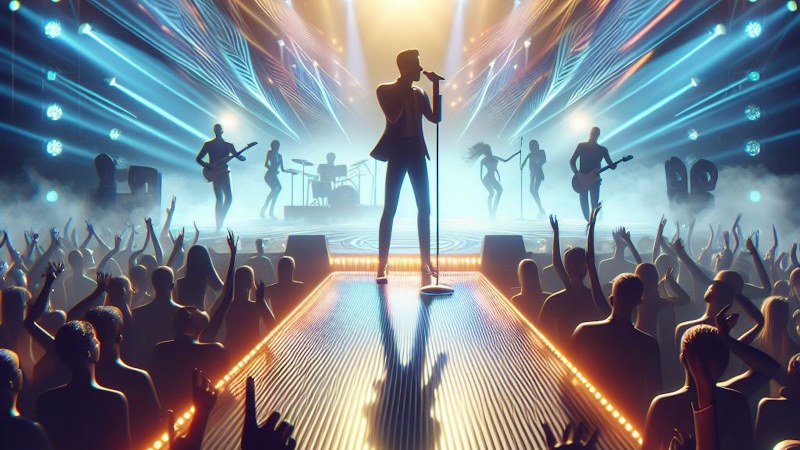
The Divergence of Opinions
On one side of the debate, some critics argue that AI, due to its inherent algorithmic and data-driven nature, lacks the depth of human experience.
They contend that the randomness and computational approach of AI might strip music of its emotional core, making it feel less authentic or moving.
This viewpoint emphasizes the unique qualities of human creativity, such as intuition, emotion, and personal experiences, which AI cannot replicate.
Conversely, proponents of AI in music highlight its capacity to expand the boundaries of creativity. They argue that all artistic expressions, whether AI-generated or human-made, hold the potential for emotional connection.
These advocates believe that the use of AI in music does not inherently reduce its ability to evoke emotions. Instead, they see AI as a tool that can enhance and diversify musical expression, offering new perspectives and sounds that may resonate deeply with listeners.
The Library of Babel and the Randomness of Creation
The philosophical implications of AI in music can be likened to the concept of the Library of Babel.
This theoretical construct posits a library containing all possible combinations of letters and, by extension, all possible texts and meanings.
Similarly, AI-generated music encompasses a vast array of creative possibilities, generated through algorithms and data analysis.
AI and the Search for Meaning in Music
This analogy prompts a deeper contemplation about the nature of meaning in music. It prompts us to ponder: Does a music piece's importance lie within its composition, or is it imposed by those who hear it?
AI is upending conventional ideas about creativity and uniqueness, indicating that the way music is interpreted and emotionally received may be more personal and subjective than traditionally believed.
The debate over AI's emotional impact on music reflects broader questions about the nature of creativity, authenticity, and emotional connection in art.
Whether viewed as an enhancement or a detriment, AI's role in music is undeniably transformative, prompting both artists and audiences to reconsider the essence of musical expression and the sources of its emotional power.
Unleash Your Musical Potential with Empress
Ready to explore the limitless possibilities of music creation? Empress invites you to experience the cutting-edge world of AI songs and audio production. Whether you're a seasoned musician or a budding artist, our AI tools are designed to elevate your creative process. Start your journey with Empress today and embrace the future of music!
FAQs:
Q1: How does AI assist in songwriting?
AI assists in songwriting by analyzing music data to suggest chord progressions, melodies, and sometimes lyrics, thereby enhancing the creative process.
Q2: Can AI create original melodies?
Certainly, AI has the capability to generate new melodies, utilizing algorithms that craft distinctive musical sequences drawn from extensive databases of existing music.
Q3: Is AI in music just a passing fad?
AI's presence in music transcends a mere trend; it's steadily becoming a fundamental component of the industry, providing innovative avenues for creative expression and production.
Q4: How do artists feel about using AI in their music?
Artists have mixed feelings about using AI in their music; some embrace it for its innovative possibilities, while others prefer traditional methods.
Q5: How does AI influence music genres and styles?
AI influences music genres and styles by enabling artists to experiment with and blend different musical elements, leading to innovative and sometimes genre-defying compositions.
Follow the future of music with Empress. Check out our blog to learn how you can effectively use these AI music tools.
